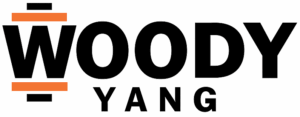The rhythm of the music industry is accelerating, driven by a force both exhilarating and unsettling: Artificial Intelligence. We stand at a critical juncture, where the next few years will determine whether this powerful technology becomes a harmonious partner or a dissonant destroyer. The promise is immense – democratizing creation, personalizing discovery, and opening entirely new avenues for artistic expression. Yet, the challenges loom just as large, threatening livelihoods, shifting economic value away from creators, and raising fundamental questions about the future of human artistry in a world increasingly capable of algorithmic generation.
On one hand, AI is already proving to be a powerful ally for artists and listeners alike. Tools are emerging that simplify complex production tasks like mixing and mastering, freeing up creators to focus on the artistic core. AI-powered platforms are revolutionizing how we discover music, with algorithms analyzing listening habits to curate deeply personalized playlists, like Spotify’s Discover Weekly, exposing listeners to new sounds they might never have found otherwise. Beyond discovery, AI is enhancing fan engagement; some artists and platforms are experimenting with AI chatbots that allow fans to interact with music catalogs in novel, personalized ways. This isn’t about replacing the artist; as some industry experts note, the vital connection between artist and audience transcends the music itself, rooted in shared experience and human connection. Instead, AI offers the potential to amplify the artist’s reach and deepen that connection through innovative digital interactions and streamlined creative workflows.
However, the economic storm clouds gathering on the horizon are impossible to ignore. Studies project a seismic shift in the music market, with AI-generated music potentially capturing a significant chunk of streaming and library revenues within the next five years. Estimates suggest the AI music market could surge from a few billion euros today to tens of billions by 2028, a growth trajectory that represents a direct transfer of economic value, much of it derived from training data that includes existing human-created works. This poses a direct threat to the income of countless musicians, composers, and producers. AI-generated background scores are already displacing human talent in areas like advertising and film, offering cost savings but eroding traditional job markets. The rise of sophisticated AI agents capable of autonomously writing, producing, and even marketing music raises the specter of a future where AI entities, requiring no royalties or downtime, could dominate certain market segments, further marginalizing human creators.
Navigating this complex landscape requires a delicate balancing act. The music industry, AI developers, policymakers, and artists must collaborate to establish ethical guidelines and regulatory frameworks. The goal isn’t to stifle innovation, but to ensure that AI serves as a tool to augment, rather than eradicate, human creativity. This means addressing critical issues around data licensing, transparency in AI-generated content, and establishing mechanisms to ensure fair compensation for creators whose work contributes to AI training data and is potentially displaced by AI outputs. Safeguarding the cultural diversity and emotional depth inherent in human-made music must remain paramount. The essence of music lies not just in sound, but in the human experience it reflects and evokes.
Ultimately, the integration of AI into the music industry is not merely a technological challenge; it is a profound cultural and economic one. The coming years will test the industry’s ability to adapt, innovate, and prioritize the human element that has always been at the heart of music. Will AI become a powerful new instrument in the orchestra of human creativity, or will it conduct a symphony that leaves human artists struggling to find their voice? The outcome depends on the choices made today – choices that must prioritize ethical development, equitable compensation, and the enduring value of human artistic expression.














